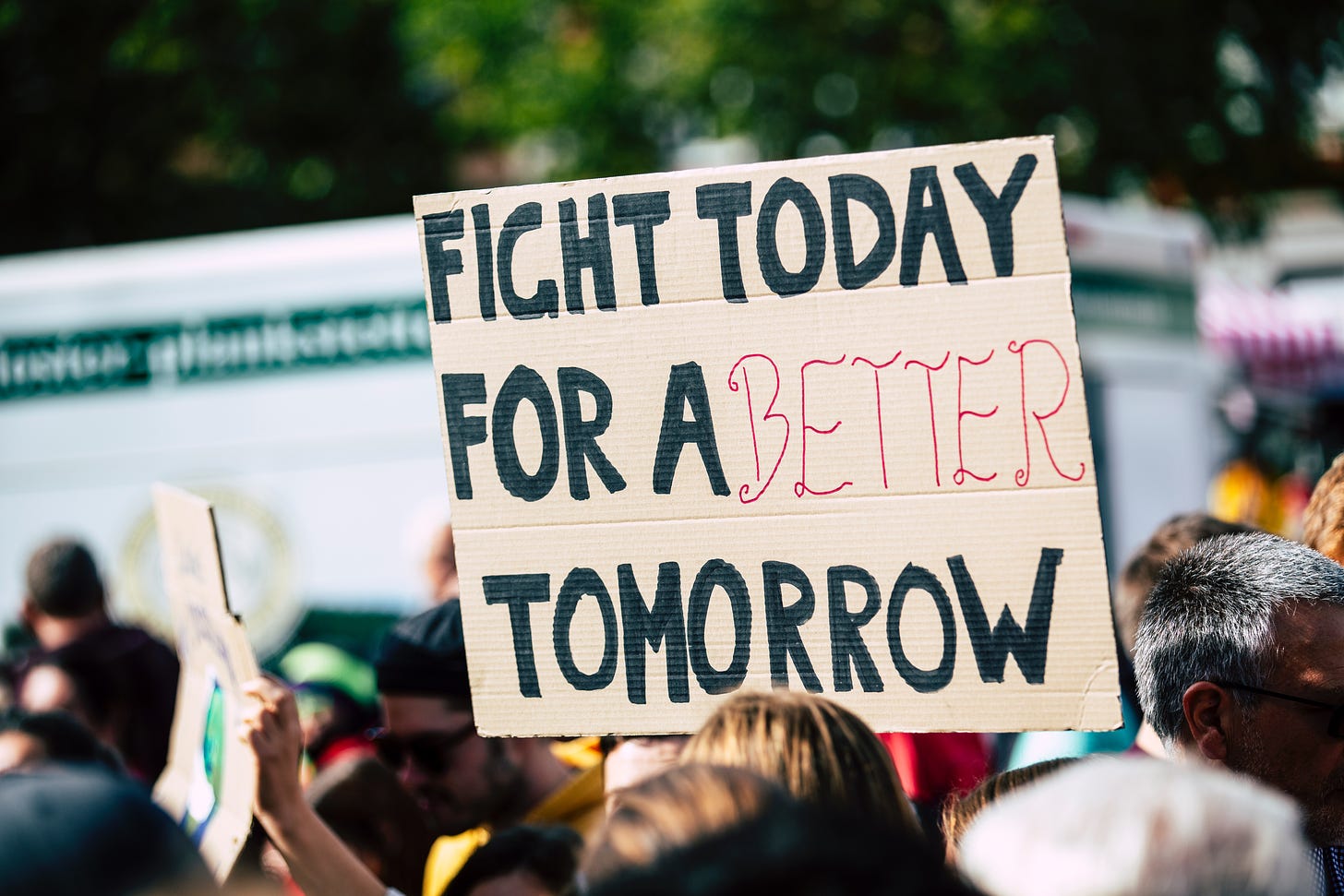Recently, my friend Evelyn shared some of her views on her Substack. Since I started Transliberalism in hopes of fostering more thoughtful and longer-form discussions, and her views are common among liberals, I thought it would be interesting and productive to provide a competing perspective.
I’ve learned from experience that nitpicking your way through a text, pointing out everything you disagree with or think is interesting, is not always the best approach. Instead, I’m going to focus on one key idea: The advantages moral pluralism has over utilitarianism and Rawlsianism.
Evelyn herself is a utilitarian. She presents the “original position” thought experiment: Every member of a society is placed behind a veil of ignorance, where they have no knowledge of their age, or race, or class, or beliefs, or anything about themselves at all. From there, they deliberate about how best to structure society before their own places in it are revealed. In this “original position,” every person is truly equal and free, and so the society they ultimately decide upon would be the product of a completely fair process. Evelyn argues that the players in this thought experiment would look to maximize the total utility of all moral patients (those who are the subjects of moral actions, such as humans and non-human animals).
Often, the liberal opposition to utilitarianism is Rawlsian, or something similar to it. John Rawls used a similar thought experiment, but instead of concluding that players in the original position would look to maximize utility, he argued that they would look to fulfill certain conditions. One of these conditions is the maximin. Rawls, working more from a duty-based framework than a mathematical one, believed that the most just society is the one that puts its lowest member (-min) on the highest possible pedestal (maxi-). In other words, to Rawls, the measure of a society is how it treats its worst off member.

I do not believe either the utilitarian or Rawlsian approaches to liberalism are the best. This is not because we disagree a lot on policy. We tend to agree pretty well, especially on the most fundamental questions. It’s more like I believe that there is a stronger possible foundation. Another possible analogy is that of cooking: While some food is sufficient to fill you up and provide the nutrients you need, food that can do both those things and tastes wonderful is better. I believe that moral pluralism is a better place to start.
The philosopher Isaiah Berlin is as good a place to start as any. Berlin argued that humans, in their ordinary experiences, encounter multiple independent values. Each value is stand-alone and genuinely, truly valuable. However, they may conflict, and there is no higher-order value which can resolve this conflict for us. We can create internal standards to sort out these conflicts, but these internal standards are subjective, while the values themselves are objective. Because of this, Berlin argued that liberalism was the best political system. How can a state enforce one way of life when there is no universal foundation to do so? Since human life is littered with hard choices, it seems downright oppressive to try to keep people from building those subjective standards for themselves.
To some extent, the idea of multiple foundations for ethics has received empirical backing. The most famous attempt to do so is the Moral Foundations Theory, which posits five foundations: Care/harm, fairness/cheating, loyalty/betrayal, authority/subversion, and sanctity/degradation, with liberty/oppression being a possible sixth. There are reasons to be skeptical of the exact structure of the Moral Foundations Theory, but many of the criticisms still accept that there is more than one base foundation for morals.
Moral pluralism has received some attention in contemporary liberalism. Jacob T. Levy argued in Rationalism, Pluralism, and Freedom that liberalism requires a constant tension between letting intermediate institutions, like the church or family, do what they want, and having intermediate institutions regulated by the government. He argued that there is no consistent way, no singular rule or standard which could reliably find the line that separates legitimate government protection and state oppression.
This overlaps with one of my favorite philosophers: Jacques Derrida. Derrida had a lot to say about politics, none of which was particularly straightforward, but much of which was suggestively liberal and quite relevant. (Derrida’s essay On Cosmopolitanism argued in favor of allowing undocumented immigrants, for example.) Derrida’s ethical philosophy, however, was moral pluralism through and through. In The Gift of Death, Derrida presents the story of the binding of Isaac as competing duties dueling for Abraham’s fidelity: Abraham’s duty to God against Abraham’s duty to his family. In committing to sacrifice Isaac, Abraham was simultaneously a righteous man, as well as a completely deplorable reprobate.
Derrida and Berlin agree, there are moral claims which sometimes conflict and cannot always be fulfilled. This similarity was not lost on Levy, who, while not particularly knowledgeable of Derrida’s philosophy, has told me that multiple people have pointed out the parallels to him.
The contrasts are obvious: Utilitarianism and Rawlsianism propose universally cohesive standards, while moral pluralism has multiple, competing, occasionally conflicting standards. I prefer moral pluralism over the others for two reasons. First, I believe it is a more intuitive and human approach. Second, I believe its bias towards liberalism is sturdier.
The three thinkers I listed earlier—Isaiah Berlin, Jacob T. Levy, and Jacques Derrida—each have an approach to moral pluralism that I would describe as more “down to earth” than the reason-heavy methodologies of utilitarianism and Rawlsianism. Berlin derived his moral pluralism from his understanding of “the world we encounter in ordinary experience.” He presented it as a sort of natural law through his empiricism, pointing to values that humans have held in all of recorded history. Levy developed his liberal moral pluralism as part of a thorough historical account of liberalism. His conclusion that liberalism’s tensions cannot be resolved is backed by historical analysis, as well as a handful of arguments against a some attempts to do so. Derrida’s moral pluralism is derived from phenomenology, a philosophical sub-discipline which has a tendency to focus exclusively on how we experience the world. His phenomenological mindset sees moral claims as being encountered or placed upon us. While a Rawlsian would see justice as a theoretical idea, a phenomenological approach sees justice as a response to a claim of injustice.
All three of these thinkers bring us to the world we encounter, through history and anthropology and ordinary experience. Thought experiments like the original position or mathematical calculations of utility require us to abstract from the world. The hope is that after entering the clouds, we might return to earth with a clearer mind, but that hasn’t quite panned out. “Ideal theory,” that approach which tries to get us to imagine an ideal society with the intention of pushing us closer to it, has received sustained criticism for its perpetual resistance to coming back to earth. Trying to clarify a theoretical and universal idea of justice all-too-often pulls us away from extremely clear present instances of injustice. This is why effective altruism works quite naturally with this approach. Effective altruism is about picking the low-hanging fruit, the really obvious places where we can really obviously make the world a better place. While utilitarianism might try to quantify precisely which approach is the most effectively altruistic, the time spent on arguing about whether total or average or negative or hedonistic utilitarianism is the best, and then how to apply that utilitarianism, might better be spent on actually picking that low-hanging fruit.

Moral pluralism also has a strong claim to liberalism. The lack of a broadly generalizable way to reconcile various moral claims points towards a thoroughly liberal attitude, where individuals are liberated to try to resolve those claims themselves. The argument seems straightforward to me: Insofar as is possible, we should try to let each individual work out their own subjective way of resolving the competing value claims, because we have no universal way to resolve them. Attempts to impose uniformity by governments or intermediate institutions will always be shaky and contingent at best and immoral at worst due to the absence of an objective solution.
The claims of utilitarianism and Rawlsianism are shakier. Thought experiments can often be problematic. Some thought experiments are intuition pumps, designed to elicit a certain conclusion via intuition even though that conclusion isn’t necessarily right. In general, thought experiments can be difficult to resolve. For utilitarianism’s part, it should be troubling that a hundred different thought experiments with uncomfortable conclusions have been presented. For example, there’s the repugnant conclusion, which argues that under total utilitarianism, a world of ten people with wonderful lives might be worse than a world of a trillion people with lives that are hardly worth living. Much of the ethical philosophy of Peter Singer, likely the most famous living utilitarian, is simply finding a bullet and biting it before anyone asks, leading him to support things like infanticide or bestiality. Of course, there is also the utility monster thought experiment, which I don’t think I need to lay out. As for Rawlsianism, the reason A Theory of Justice kicked off such a firestorm of political philosophy is that Rawls made a lot of arguments that were dubious at best, and downright wrong at worst. If the goal was to spark discussion, it might’ve been the perfect combination of fascinating, insightful, and wrong. Thought experiments are very difficult to get right. Perhaps it’s better we return to earth.
Again, I don’t disagree with Evelyn, or most liberal utilitarians or Rawlsians, on most matters of policy. Especially when it comes to the most important stuff (such as democracy, for example) we all seem to be on the same page. There is a risk of me falling to the same error I accused ideal theory of, spending too much time discussing theoretics and not enough making the world a better place, if I press too hard. My main point is simply as follows: I believe that moral pluralism provides a more human and more reliable foundation for liberalism. Nothing more.



